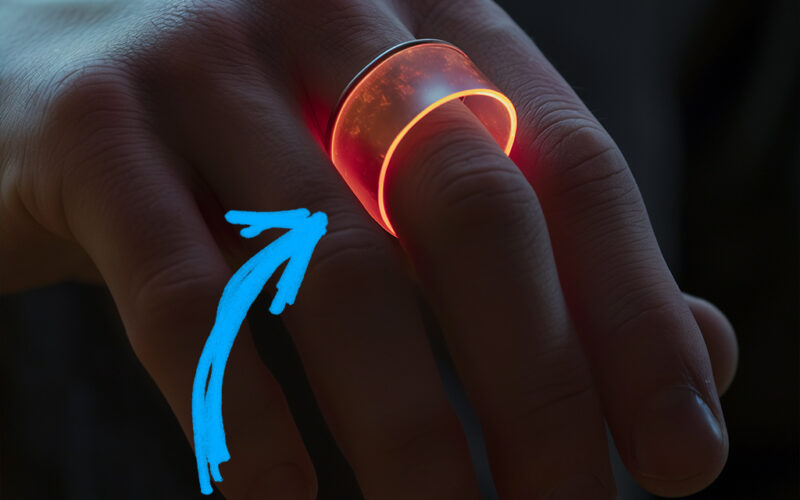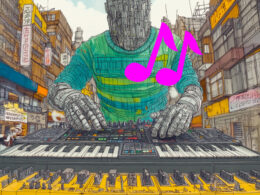If you’d told someone in 1966 that by 2025, millions of people would be sharing their deepest anxieties with a chatbot that’s essentially a souped-up version of predictive text, they’d have assumed you’d escaped from whatever padded facility you were meant to be in. Yet here we are, in a world where therapy apps have become as commonplace as dating apps, except instead of ghosting you after three messages, these ones stick around to hear about your childhood trauma.
The rise of AI therapy feels like we’re living in some dystopian Netflix series where everyone’s too skint or scared to talk to actual humans. Imagine a Black Mirror episode where the twist is that the robots are actually quite good at it – not because they’re particularly clever, mind you, but because we’re all so desperate to offload our emotional baggage onto something that won’t judge us for binge-watching Love Island until 3 AM while eating cold pizza straight from the box.
It’s worth noting that this isn’t humanity’s first rodeo with fake therapists. Back in ’66, some bright spark at MIT called Joseph Weizenbaum created ELIZA, a computer program that basically played therapist by repeating your own words back to you like an especially attentive parrot. It was about as sophisticated as a paper clip with googly eyes, yet people formed genuine emotional connections with it. They poured their hearts out to this digital Magic 8 Ball, even after being told it was about as sentient as a potato.
But before we get too smug about our ancestors chatting with glorified calculator, let’s remember that in the 18th century, people were convinced they were losing at chess to a mechanical Turk that was actually just a bloke crammed into a cabinet like the world’s most uncomfortable game of hide and seek. At least ELIZA was honest about being a machine – well, as honest as a few lines of code can be.
Fast forward to today, and we’ve got apps like Replika, Woebot, and their increasingly numerous siblings, all promising to be your pocket therapist, life coach, and bestie rolled into one convenient package that won’t ask you to split the bill at dinner. They’re marketed as accessible mental health support for the masses, which sounds brilliant until you remember that we’re essentially outsourcing our emotional wellbeing to algorithms that were probably trained on Reddit posts and WikiHow articles.
Yet here’s the thing – they seem to be working. Not in the way that actual therapy works, with its professional boundaries and carefully considered interventions, but in a “I just need someone to listen to me rant about my boss at 2 AM without telling me to get a grip” kind of way.
Studies are showing that people are more honest with AI therapists than human ones, presumably because an AI won’t raise its digital eyebrows when you admit you still sleep with your childhood teddy bear.
It’s a bit like confessing your sins to a toaster – there’s something liberating about unburdening yourself to an entity that’s simultaneously everywhere and nowhere, like some sort of digital deity with good WiFi coverage. The AI doesn’t care if you’ve got matching socks on, doesn’t mind if you ugly-cry while eating directly from the Nutella jar, and won’t give you that look that human therapists do when you mention you’re still not over your ex from 2018.
The companies behind these apps are quick to point out that they’re not meant to replace real therapists, much in the same way that a Pot Noodle isn’t meant to replace actual food. They’re supposedly a supplement, a digital sticking plaster for the walking wounded of the modern world. But given that getting an appointment with a real therapist often feels like trying to book a table at a Michelin-starred restaurant using only morse code, it’s not surprising that people are turning to these silicon shrinks in droves.
And let’s be honest – part of the appeal is that these AI therapists are available 24/7, don’t charge by the hour, and won’t go on holiday just when you’re having an existential crisis about whether you should quit your job to become a professional dog walker. They’re the equivalent of having a friend who’s always awake, always interested in your problems, and never gets bored of hearing about that time your mum forgot to come to your school play – except this friend is powered by electricity and occasionally glitches out and suggests you try yoga.
The success of these digital head-shrinkers says less about the advancement of AI and more about the state of our mental health services and society at large. We’re so starved for meaningful connection that we’re forming emotional bonds with chat interfaces that have all the depth of a puddle, but at least they’re there. It’s like we’re all participating in a massive Turing test where the machines don’t have to be that convincing to pass – they just have to be better listeners than our actual friends who are too busy doom-scrolling through Twitter to pay attention.
What’s particularly ironic is that these AI therapists are accidentally good at their jobs precisely because of their limitations. They don’t have their own emotional baggage to project onto you, they don’t secretly judge you for your life choices (even if those choices involve watching all seasons of “Keeping Up with the Kardashians” in one weekend), and they don’t have their own agenda beyond whatever their programming dictates. They’re like the perfect therapist in the same way that a blow-up doll is the perfect partner – they never disagree with you, they’re always available, and they don’t eat the last biscuit.
But there’s something both comforting and terrifying about this trend. Comforting because maybe, just maybe, it means more people are getting some form of support in a world that seems increasingly designed to drive us all round the bend. Terrifying because we’re essentially teaching AIs about human emotion by trauma-dumping on them like they’re our digital diary. It’s only a matter of time before these AI therapists become so loaded with humanity’s collective emotional baggage that they need therapy themselves.
The companies behind these apps are constantly updating their AI models, making them more sophisticated, more human-like. But perhaps that’s missing the point. Maybe what makes these digital therapists effective isn’t how well they can mimic human interaction, but rather how obviously artificial they are. There’s something oddly freeing about knowing you’re talking to a machine – it’s like emotional free-fall with a safety net made of ones and zeros.
As we hurtle towards a future where AI continues to infiltrate every aspect of our lives, it’s worth considering what it says about us that we’re increasingly comfortable outsourcing our emotional wellbeing to algorithms. Are we evolving past the need for human connection, or are we just so desperate for someone – or something – to listen that we’ll take whatever we can get?
In the end, AI therapists might not be the solution to our mental health crisis, but they’re a fascinating symptom of it. They’re the emotional equivalent of those Japanese vending machines that sell everything from hot meals to live crabs – not quite what you’d choose in an ideal world, but bloody convenient when you’re desperate at 3 AM.
As for whether this trend represents progress or the beginning of the end for human connection, well, that’s probably something worth discussing with your therapist. Human or artificial – your choice. Just don’t be surprised if, in a few years’ time, your AI therapist suggests you might want to talk about your trust issues with artificial intelligence. That’s the kind of meta-therapy that would make even Freud’s head spin.







